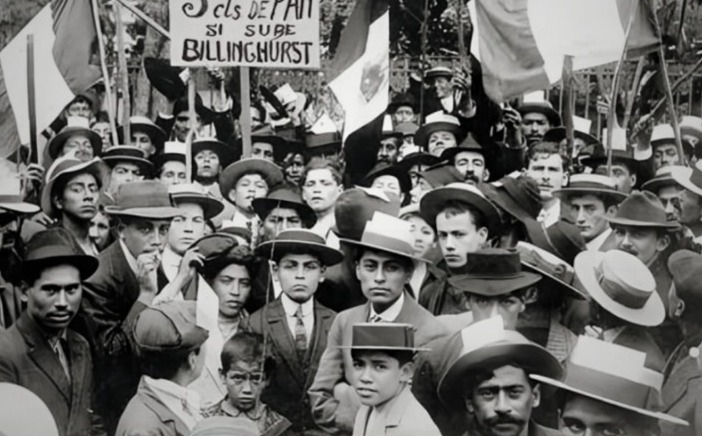
On a day like today, 105 years ago, the 8-hour work day was achieved in Peru, after tireless years of workers’ struggle for the recognition of decent work.
As the General Central of Workers of Peru (CGTP) recalls, at the end of the 19th century modern industry was developing more and more. At this time, “along with the Creole capitalist class, the modern proletariat emerged”, which was concentrated in the textile, food, mining and agricultural economic sectors.
“The workers, bakers, dockworkers, printers and railways who made up the other social forces of notable importance appeared on the scene,” says the leader of Sutep, Alfredo Velásquez.
Finally, on January 15, 1919, 8 hours of work was achieved thanks to the struggle of the Estrella del Perú bakers, textiles, weavers, cigar makers, printers, bricklayers, tailors and railway workers.
At the provincial level, the fight took place in Arequipa, Huacho, Sayán, Pativilca, Trujillo, Talara and Negritos, among other places.
As a result of these heroic days of struggle that began in the last century, President José Pardo y Barreda (through the Supreme Decree of January 15, 1919) established the 8-Hour Work Day in Peru.
The 8 working hours that do not exist in Peru
The labor lawyer Javier Mujica regrets that, 105 years after this victory was obtained, the 8 working hours in Peru are a dead letter, even in the formal sector encouraged by the Government.
Mujica maintains that, although 70% of the labor market is immersed in informality, 70% of the formal labor market is also subject to short-term contracts. The worst of all is that 50% of formal workers earn minimum wage or less than that, which also translates into the consolidation of a purely extractive economy that depends on the international costs of commodities, but not on internal demand. .
“As they are hired for a fixed term and want their contracts to be renewed, they are subject to rules that usually require them to work beyond 8 hours. The vast majority do not enjoy a break and sacrifice the free time that they should dedicate to work. care for your health, your family and more opportunities for personal development, through study, for example,” he emphasizes.
Beyond strengthening labor supervision in the Peruvian market, Mujica recommends “rethinking the economic model inherited 30 years ago from Fujimorism,” in order to promote unionization, as occurs in OECD countries that Peru aspires to reach, and let behind the models based on the “precariousness of workers”.
Source: Larepublica
Alia is a professional author and journalist, working at 247 news agency. She writes on various topics from economy news to general interest pieces, providing readers with relevant and informative content. With years of experience, she brings a unique perspective and in-depth analysis to her work.












